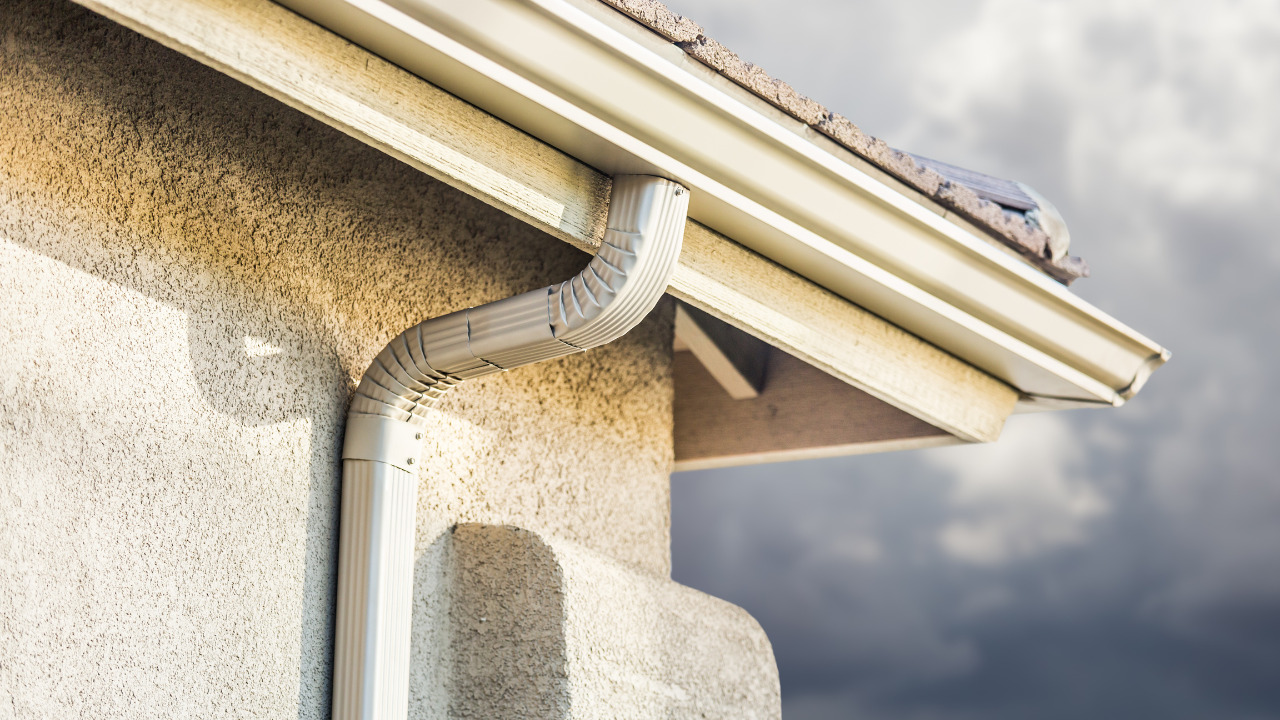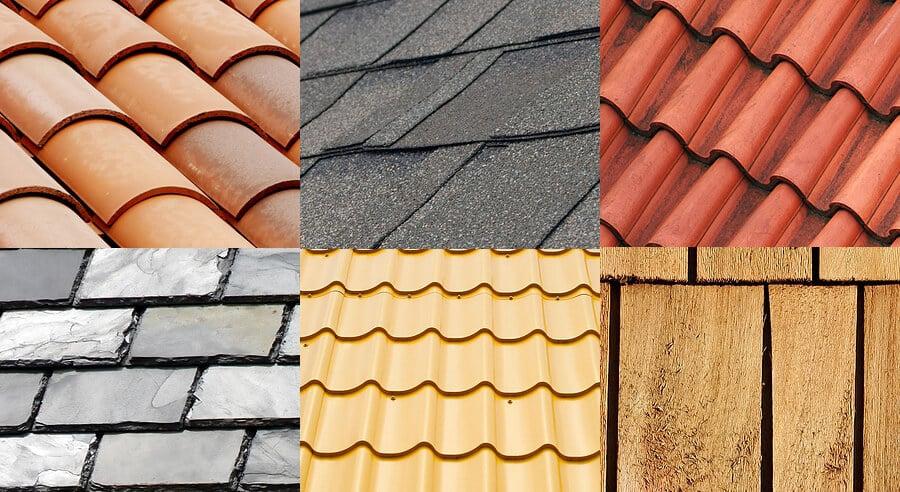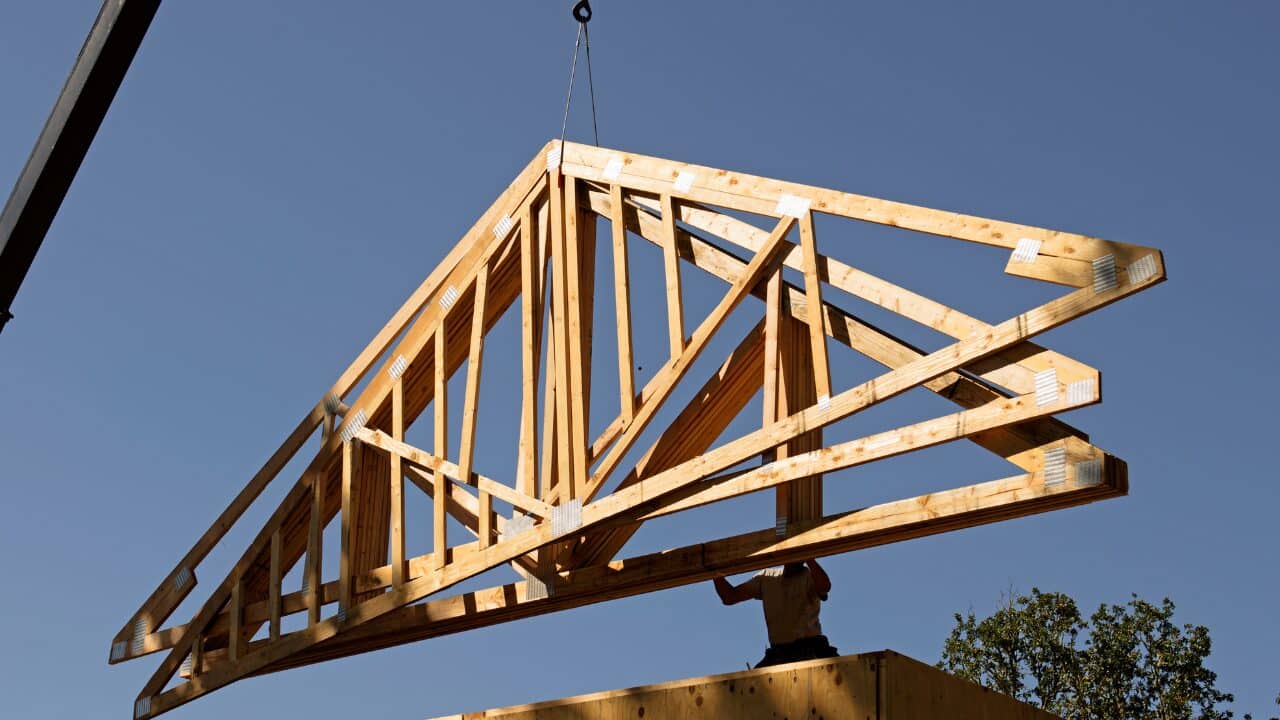Whether you recently had a new roof installed or are having repairs done on your roof, it can be beneficial to know the basic terms that the contractors use. An excellent illustration of this is the roof fascia, the portion of your roof facing the front, which is essential for keeping animals and moisture out.
Dealing with roof damage can be stressful, no matter the severity. Roof damage can affect multiple parts of a roof.
From leakages and wind to heat and structural changes, several factors can lead to roof damage. Structural changes such as damaged roof fascia are a common problem for homeowners.
Roof fascia are susceptible to damage over time and often need immediate replacement. But that’s not always the case. Sometimes, minor repairs are enough without a need for fascia replacement. So, it is essential to assess the extent of damage to come up with the right solution.
Let’s walk through roof fascia, how roof damage occurs, and the ultimate repair strategies.
Table of Contents
What is Roof Fascia?
The roof fascia is an essential architectural component that runs along the edge of a building’s roof and serves both functional and aesthetic functions.
The fascia is typically a flat board or band that runs parallel to the structure’s outer walls and is located horizontally beneath the roofline. Its primary function is to provide a polished and finished appearance to the roof’s perimeter, significantly contributing to the building’s overall curb appeal.
The fascia’s primary function is to support the roof’s lower edge. It acts as a protective barrier, preventing water from infiltrating and damaging the roof structure.
Furthermore, the fascia is an important attachment point for gutter installation. The fascia helps channel rainwater away from the roof and the building’s foundation by supporting the gutters, preventing water-related issues.
3 Parts of a Roof Fascia
The fascia system of a house comprises several key components that work in conjunction and complete the system. These parts of the roof fascia are discussed herewith:
1. Fascia Boards
These are the actual horizontal members that cover the roofline. You can install them just where your roof meets the exterior walls. You can use any material, however, durability is the key consideration while selecting fascia boards.
2. Fascia Covering
It refers to protecting the surface of fascia boards by preventing direct contact of water with the fascia boards. However, covering the boards is not always necessary especially when the material of your boards is adequately resilient and durable.
3. Gutter System
As already discussed, fascia boards serve as mounting points for the gutter and leader pipes. Gutters carry water away from home and fascia boards help gutters with their function. This is another purpose of gutters installation before fascia boards as they provide support for the gutter pipes in place.
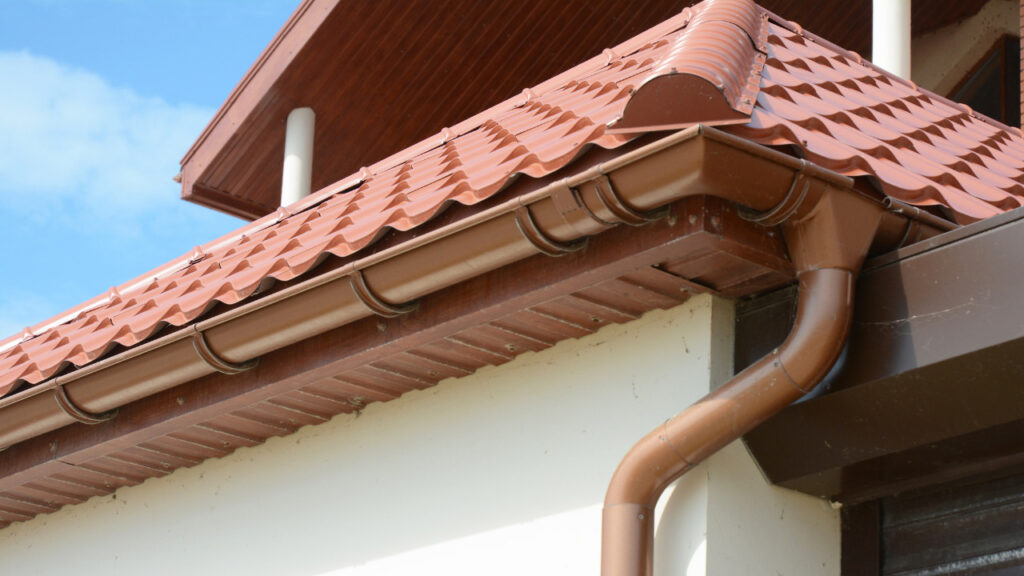
Purpose of Roof Fascia
Some of the common purposes of roof fascia are:
- It prevents your home from weather damage such as rain, wind, snow, etc. by acting as a barrier. It helps the shedding of water to keep your roofing system safe.
- These boards also serve an aesthetic purpose by enhancing the visual appeal of your home.
- Also, the roof fascia is a mounting point for these gutter pipes that collect water and drain it away from the building.
- This roofing element also prevents the entry of pests into the roof space.
- Fascia boards also cover the exposed rafter ceilings and give a more finished look.
Materials for Roof Fascia Boards
Fascia boards can be made from different materials such as wood, PVC, plastic, aluminum, etc. Here is all you need to know about these material options.
Wood
Wood is the traditional material type for fascia boards. These wooden boards can be made up of cedar, pine, redwood, spruce, etc. The use of wood gives a natural look to your house’s exterior. Water and weather-resistant woods can be ideal for making roof fascia. Also, roof boards are more affordable than other material types. For wooden boards, you need a primer that you can paint later.
PVC
These boards are mostly installed because they are versatile in their performance. PVC boards are preferred over other materials due to their durability. Also, the replacement cost of PVC boards is lower than that of wooden boards. These boards also come in a variety of styles and designs to match your interior. So, these low-maintenance PVC boards can be your best bet when it comes to choosing material for roof fascia.
Aluminum
Another material option for fascia is aluminum. Aluminum boards are mostly preferred for commercial buildings as they last for longer times. However, aluminum boards are quite expensive than other materials. Aluminum being hard to damage and easy maintenance is often preferable for industrial buildings.
Roof Fascia Repair vs. Replacement
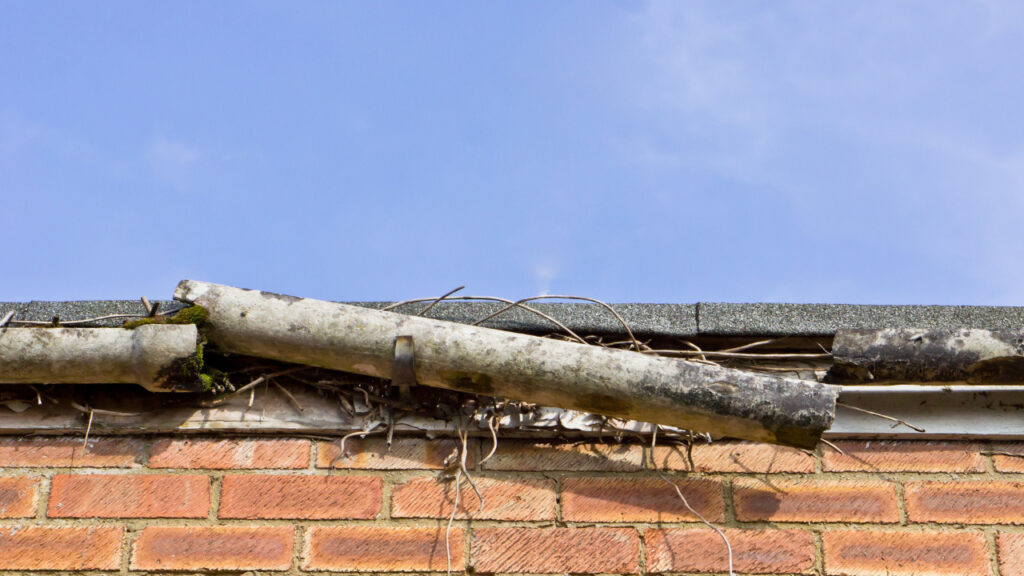
A pertinent question is how do we know if your roofing system needs replacement or repair?
One should go for board replacement if the signs of damage are visible such a case, you first need to consult an expert who will investigate the extent of damage and suggest a plausible solution.
However, if through a period inspection, you see a small localized area of fascia getting damaged, you can repair it by trimming the affected part and connecting a new piece with the existing part. However, make sure to join the two pieces carefully so they can be strong enough to mount the gutters.
7 Steps to Repairing Roof Fascia
Step 1: Evaluate the Current Fascia in Place
You must first inspect the fascia board to evaluate how much of it needs to be replaced or repaired. While selecting a substitute card, you should also consider the dimensions of the original card.
As part of a complete roof replacement, your roofers will replace your fascia board by first installing new shingles and then treating them.
Step 2: Remove the Gutters and Drip Edge
The gutters cannot be replaced without first removing them, because they are fixed to the fascia board.
It’s also possible that the drip edge will need to be removed by your roofers. If so, you can reuse the drip edge as long as it’s in excellent condition—that is unless you break the limited warranty set forth by the manufacturer.
Step 3: Take the Outdated Fascia Board Off
Your roofers will use a hammer, pry bar, or other tool’s claw to carefully remove the dashboard’s nails and disassemble it.
Step 4: Calculate and Cut
The replacement fascia board will then be measured and cut to fit by your roofers. They can split the fascia into smaller, more manageable sections. If so, the piece needs to be nailed in place on both ends and span at least two rafters.
Roofers can mark the rafters’ locations on the board before putting them there to make sure the nails can penetrate the rafters and make nailing easier.
Additionally, your roofers will need to join the fascia board’s edges. They cut the board at 45-degree angles to create a joint.
Step 5: Seal the Seams
Every wood piece should be sealed to prevent water from getting into the joints. Your roofers might apply another type of sealant or silicone caulk.
Step 6: Enclose the Timber
The wood itself needs to be sealed at this point. For exterior wood, any wood sealer will work just fine. Your roofers can paint your gutters a complementary color.
If you’re using fascia trim, painting the wood is not necessary. The wood will be concealed by the trim, making it invisible. Your roofers will install the trim by cutting, measuring, and nailing it to the fascia board rather than painting it.
Under certain circumstances, high-quality woods like cedar can be left unsealed.
Step 7: Attach Gutters and Drip Edges
Now that the fascia is installed, your roofers will tear off and reattach your gutters, and VOILA! Your fascia roof is brand new.
Causes of Damages in the Roof Fascia
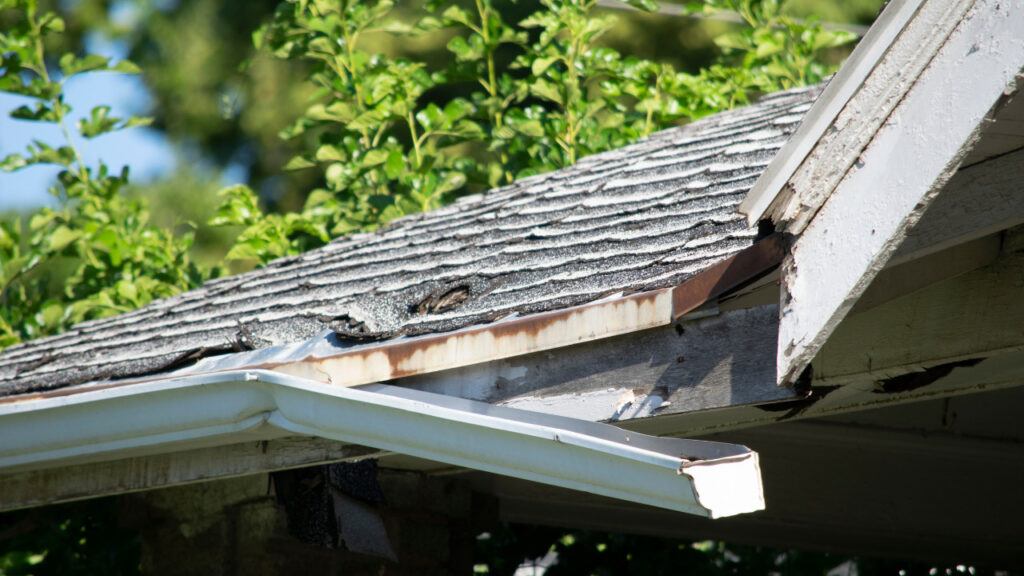
The predominant cause of damage to fascia boards is leakage or clogging in the gutter system. Therefore homeowners need to be critical about gutter cleaning from the very beginning. This usually appears in the form of rots on the surface. The pipes mounted on the fascia boards are also responsible for de-routing the rainwater away from the building.
A blockage or leakage in these pipes will allow water to trickle on the fascia boards and will result in the rotting of these boards over time.
The common types of damage that can affect your fascia system are as follows:
Damage Due to Moisture
This type of damage occurs when there is something that stops water from going away. It can be a leakage in the pipe mounted on the board or clogging in the same. Repeated exposure to moisture will make the boards unstable and in the case of wood, you might see a rot on the board surface.
Cracking
Cracking in the fascia boards may occur because of exposure to extreme weather conditions or with age. The dead weight itself is sometimes sufficient to develop cracks in the boards. These cracks are a source of weakness and an alert for proceeding with replacement.
Buckling or Bending of Boards
Sometimes the fascia boards will bend in one direction. This can be because of any lateral load or a structural problem.
Mold, Algae, or Fungus
These damages are likely to occur if your fascia boards are almost always wet. These may infest the boards and weaken them over time.
How to Protect Damage to Roof Fascia Boards
Periodic Roof Inspections
The benefit of inspecting roof fascia periodically is to see some localized signs of damage. Doing so will help you figure out the root cause and make timely amends. The inspections will unveil the surface damages on the boards in the form of the surface getting rough and scaly or rotting.
The advantage of going for roof inspections is that the homeowners will not need to spend money on fascia replacements. In addition, the cause of damage will also be evident.
Timely Repairs
If you become careless about what happens to your roof fascia, you will end up replacing the entire fascia system and buying a new one. Therefore, it is important to repair the damaged part of the roof fascia instead of letting the damage spread.
If you see a fascia board getting worn out, go for repairing it instead of waiting for further damage. This will potentially extend the life of your fascia system.
Consulting Roofing Experts
Oftentimes we see a problem hitting up but we are unaware of what exactly should be the next step. Instead of a hit-and-trial strategy, it is always better to consult someone who is an expert in the field. The professional will help subside your worries by answering your queries.
Given this, if your roof fascia is damaged and you think it needs repair, it is best to call in experts to help you figure out what’s causing the damage to sprawl and how you can essentially repair the boards with a minimum investment of money.
Understand Your Roof Better
Roof fascia are the outward-facing boards that are present along the roof edges. This is an important element of any roof and serves multiple purposes. It majorly prevents your roof from external damage. These boards can be made up of different materials having variable durability.
However, the fascia boards get damaged over time.
To prevent damage, it is recommended to go for periodic inspection and timely repair. Otherwise, you may need to go for a replacement option. So, we recommend you consult professionals for inspection purposes and to get the best solutions for your damaged fascia boards.

